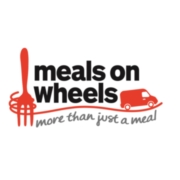A new direction for Meals on Wheels
Neel Radia, national chair of the National Association of Care Catering (NACC), discusses the findings of new research into Meals on Wheels provision. It highlights a worrying trend for this service, but also shows ways for local councils to continue to provide Meals on Wheels without breaking the bank.
The number of UK councils providing Meals on Wheels to vulnerable older people has dropped below 50% for the first time. New research by APSE, which the NACC commissioned for Meals on Wheels Week, revealed the worrying statistic that just 48% of authorities provide a service, compared with 66% only two years ago.
Meals on Wheels gives older people living in their own homes a hot, nutritious meal, safety and wellbeing checks, social interaction, and helps prevent hospital admissions. Under-investment puts this group at risk and places unnecessary pressure on the NHS – quite simply, it’s a false economy. But, because it’s a non-statutory service, it will always be at risk whilst council budgets are strained.
It's not, however, all a story of negatives. The NACC has been working with the charities Sustain and Sustainable Food Cities to identify councils showing innovation in austerity and successfully adopting new Meals on Wheels service models, at little or no direct cost to the council.
The positive, fresh approaches, which include social enterprise and combining school meals production with Meals on Wheels, have enabled councils to continue to provide, monitor and grow a Meals on Wheels service – and, we urge all councils to take inspiration and follow suit.
Our research also includes a number of case studies, and one is outlined here. The others can be viewed here.
Case study: A different approach in Plymouth
Background
CATERed is a local authority cooperative trading company in Plymouth that supplies a school meals and a Meals on Wheels service, prepared from locally-sourced, seasonal fresh food, for the county council.
In 2012/13, the Meals on Wheels service was transferred from adult social care to the then education catering service. At the time, the number of clients accessing the Meals on Wheels service was in decline, and labour and food costs were too high. The education catering service management team was successfully delivering sustainable, seasonal school meals and was tasked with replicating this for older, vulnerable citizens.
Offering similar meals for schools and Meals on Wheels creates efficiencies in food procurement, storage and production. CATERed uses its procurement power to purchase fresh, local and seasonal food and ingredients for both school lunches and Meals on Wheels dishes, which were initially produced by school catering staff in school kitchens.
Now, working with a privately run residential home for elderly and sight impaired residents, CATERed has negotiated a move for its Meals on Wheels operation to a purpose-built kitchen. The residential home offers full, rent-free use of its on-site kitchen (CATERed pays utilities and business rates), and in return CATERed prepares a lunchtime meal for the residents’ restaurant, at a charge of £5+VAT per meal. It currently serves 25-30 residents per day and the additional income supports the cost of meals on Wheels.
The combined service maintains economies of scale on labour and allows for growth of the Meals on Wheels business without impacting on school food operations, which have seen significant increases in production since the introduction of Universal Infant Free School Meals.
About the service
A small team of drivers delivers 130 meals, 365 days a year, in and around Plymouth. Lunch costs £5 for people in receipt of a care package and £6 for others. Tea, a sandwich and a piece of cake or fruit, costs £2.75.
The service has approximately 270 listed clients, receiving five meals a week on average. There is no eligibility criteria to access the service, which enables it to attract a wider clientele, including private customers, as well as those receiving care and support. Since the service started, the number of private purchase meals has increased by two-thirds (67%).
In the last client survey (Sept 15), 70% of customers expressed good levels of satisfaction across a range of measures.
Added value
The service values one-to-one contact between staff and clients. Drivers are able to carry out a welfare check, plate the meal and encourage people to eat, with a protocol to raise any serious concerns with next of kin, GP, or social worker.
When delivering meals to sheltered housing, the service also plates meals in the communal dining area. There is a small additional charge for this of 54p per head.
Plans and hopes for the future
CATERed is working to increase the numbers of meals served to private individuals, private care homes and lunch clubs. The company is also exploring the potential to supply small local hospitals.
CATERed would also like to develop school lunch clubs, where older people can eat alongside pupils, and is discussing this with individual schools.


.png)



.png)